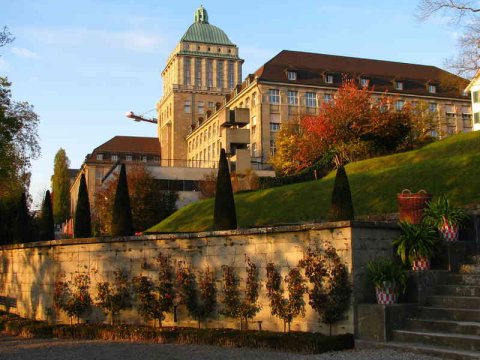Within the frameworks of fulfilling the program on international scientific collaboration, the Department of Russian Language and Literature of the Institute of Social Sciences and Humanities continues with a series of events allowing to bring youth science up to a completely new level, which complies with the international standards.
For over several years now the philologists of the Institute of Social Sciences and Humanities have been collaborating with the Institute of Slavonic Studies at the University of Zurich in various formats: jointly holding and mutually visiting conferences, holding master classes, collaboration of the editorial boards of online journals on student creativity and science SlavicumPress of the University of Zurich and Divan journal of SUSU.
This year, a year of the university’s 75th Anniversary, on May 25–26, 2018 an International Student Conference on The Absurd in Literature, Art and Cinema will be held, the co-organizer of which is the Department of Russian Language of the Institute of Social Sciences and Humanities, along with University of Lausanne (Switzerland), University of Konstanz (Germany), University of Zagreb (Croatia), University of Belgrade (Serbia), and Kazakh Ablai Khan University of International Relations and World Languages. The Institute of Slavonic Studies at the University of Zurich, which is also an academic partner of the Institute of Social Sciences and Humanities, acts as the basic organizer of the conference.
The program of the anniversary event will include a video-conference; an online Round Table, where Master’s students of the Department of Russian Language will deliver presentations; interview with Professor of University of Geneva Jean-Philippe Jaccard.
According to the conference moderators, Prof. Tatiana Semyan and Elena Ponomareva, the work of students of the Institute of Social Sciences and Humanities as moderators and speakers at the international conference of this scale demonstrated relevance and efficiency of the scientific field of the Department of Russian Language, its compliance with the best international standards of education, and the level of modern academic science.




